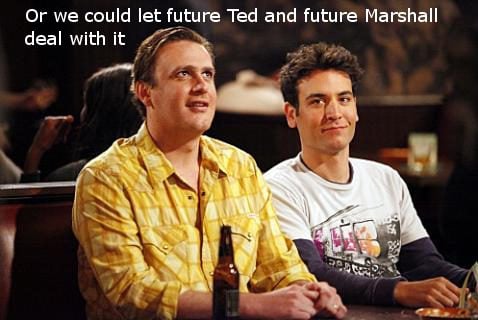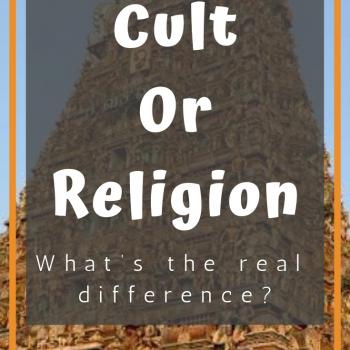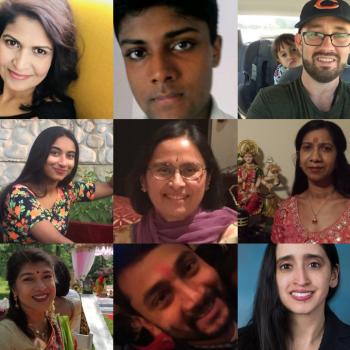One of the biggest questions in religion is whether what happens to us is in our control or not. Are we destined for a particular outcome or can we influence our future?
Hinduism teaches an interesting blend of fate and free will.
There is a lot that is bound up in fate. The moment of our birth, the family into which we are born, the trials we will face in this life, all are created by sanskara (the remnants of karma, our previous action).
Many Hindus are extremely fatalistic, feeling that they are chained to their experiences by astrology, birth, the choices of the Gods. Yet most gurus say, we can change our fate at any moment.
The explanation is the Hindu focus on the present moment. As the famous Sanskrit poem goes (Yes, the AA booklet took this from a Sanskrit proverb!)
“Yesterday is but a dream, tomorrow but a vision. But today well lived makes every yesterday a dream of happiness, and every tomorrow a vision of hope. Look well, therefore, to this day.”
The present moment is the only thing that actually exists and so when we are able to be fully engaged in what is happening right this second, we have the power to change our future, to change the world. All change comes from this moment.
Fate is our sanskara. We created some of it in the past, which gives us the experiences we are having now, but we can change what our future self will be experiencing by our choices right now.

It is interesting to look at how fate functions in the epic Mahabharata. The actions of the characters seem to loop around on themselves. Everything anyone does is tied to their fate from the past.
For example: Draupadi has to marry all five Pandava brothers because of the teasing way that Arjuna introduces her to his mother. He jokes that he has won a prize and his mother says he must share it with his brothers before she knows that it is a wife. But then she says that fate slipped into her words and she cannot take it back, so Draupadi must marry all five brothers. Yet, the text gives another explanation too. Draupadi was destined to have five husbands because she had previously prayed with complete sincerity for a husband five times. Or when the hunter kills Krishna and Krishna tells him that it’s okay because he was destined to do it because of who he was in a past life.
The story is full of examples like this where someone’s action is given at least two and sometimes more explanations and causes.
But then we also see people make choices that lead to their future fate. Such as when Pandu shoots the gazelle who curses him and sets in motion the entire dispute for the throne. Or when Gandhari is told that her first born son is a monster and should be killed to protect the future. She is given the option to do away with him and she refuses. Those choices have consequences.
And that’s all fate is: the consequences of choices. So if we make good choices right now, good fate will start happening to us!













